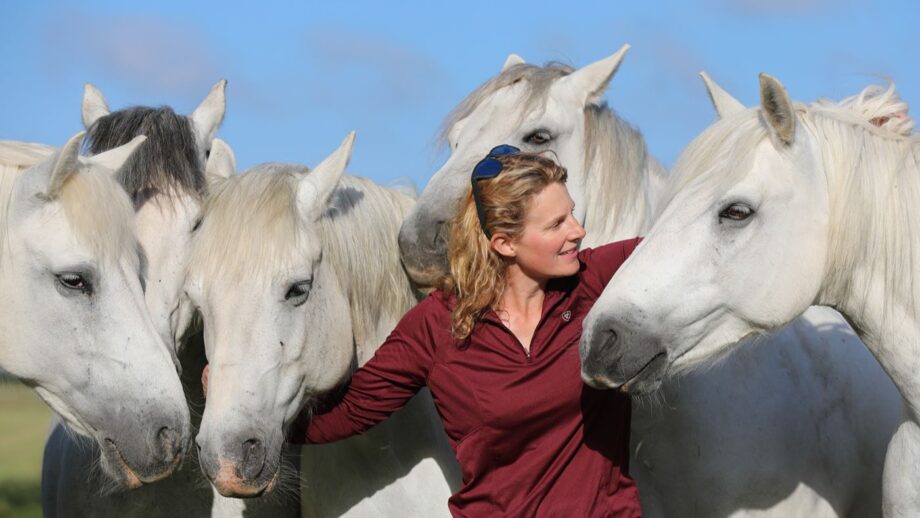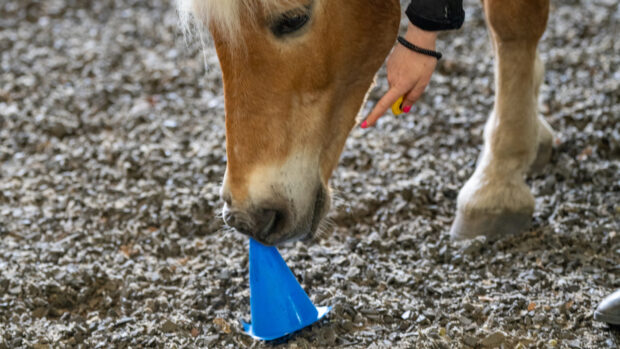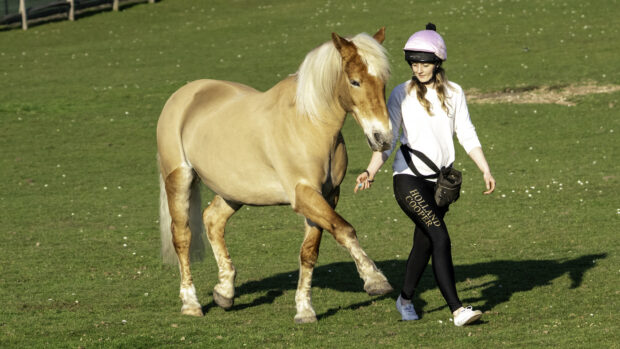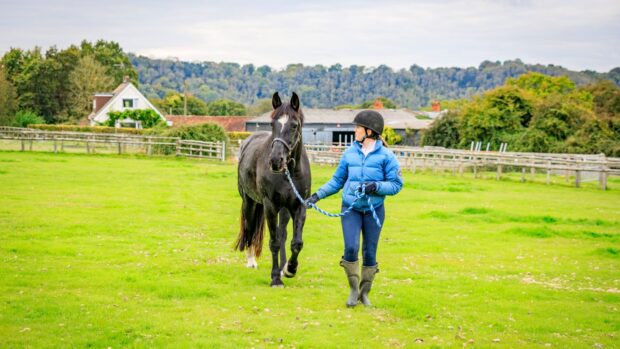Clicker training is popular in the dog training world, but many people use clicker training for horses, too. It’s a method of positive reinforcement training, which means a reward is offered in response to a desired behaviour. The theory is that by rewarding the behaviours you want to see, your horse is more likely to reproduce these behaviours again in the future.
What is a clicker?
A clicker is a small mechanical device that makes a sharp noise when pressed. It’s used as a marker to communicate the exact moment of good behaviour. You could use other distinctive sounds, such as saying “yes” or “good,” a whistle or a cluck of your tongue, but using a clicker is more clear cut and contains no emotion, so it’s more consistent and your horse is more likely to respond.
How does clicker training work?
Using a clicker is a way of marking a moment. There’s nothing special about the noise, except that it’s not something your horse is likely to hear elsewhere. By always following up the click with a reward, your horse will learn that the click indicates a reward is on the way. The clicker communicates the exact moment your horse does what you want, so the timing of the click is essential and every click must be followed by a reward.
Horses learn at different speeds. Some will make the connection quickly, while others will require a number of sessions.
How to introduce clicker training to your horse
You’ll need a clicker with a wrist strap, some horse treats, and a bag that you can put them in that keeps your hands free – a small bum bag is ideal.
To begin with, it’s important that you teach your horse how to behave during training. He must learn not to nudge or sniff the bag for treats. Instead, use the following steps to teach your horse to be polite, look straight ahead and wait for the treats to come to him. This process will help your horse understand that the clicker is part of training, rather than just being associated with food.
- Stand to the side of your horse in a position that allows you to easily move out of the way if necessary.
- Take a treat from the bag and hold it in your hand. If your horse tries to take the treat, ignore him and ensure that he does not receive the treat.
- When your horse give up and looks away, click the clicker and instantly give them a treat.
- Repeat this exercise from each side.
Keep the sessions short – no longer than 10 mins at a time – and feed your horse away from the bag so that he can’t steal treats.
How to use teach your horse with clicker training
Once your horse understands the basics, you can introduce the clicker to your normal training routine. Think carefully about what you want to teach your horse and break down the training step by step.
A good action to begin with is teaching your horse to touch an object, such as a cone, with his nose.
To do this, first click and reward your horse when makes a movement towards the target, however small it is. Follow this up by clicking and rewarding every step of the behaviour, so that every movement towards the target earns a click and a treat. Continue in this way until your horse touches his nose on the target and fully understands the command. Once he fully understands what you’re asking of him, you can add a vocal cue.
Once your horse starts to offer the behaviour more frequently, wait until the touch is more dramatic – for example, when your horse come from a few feet away to touch the target instead of a few inches. You can increase the difficulty by looking for “duration”, which is when your horse touches the target and keeps his nose there for a few seconds.
Once a behaviour has been learnt on command and is performed consistently, the clicker and treat can be phased out. You can apply this method to any action or behaviour you’d like to teach your horse to produce on command.
You might also like:

The best treats for your horse – because they’re worth it!

Why a pat on the neck isn’t what your horse would choose and how to use rewards effectively in training

Interested in working horses at liberty? Here’s what you need to know about its history, approaches and best practice from expert horse trainers

Subscribe to Horse & Hound magazine today – and enjoy unlimited website access all year round
Horse & Hound magazine, out every Thursday, is packed with all the latest news and reports, as well as interviews, specials, nostalgia, vet and training advice. Find how you can enjoy the magazine delivered to your door every week, plus options to upgrade your subscription to access our online service that brings you breaking news and reports as well as other benefits.






